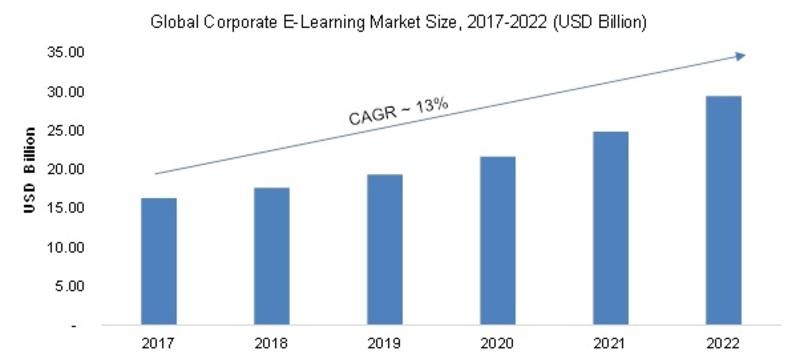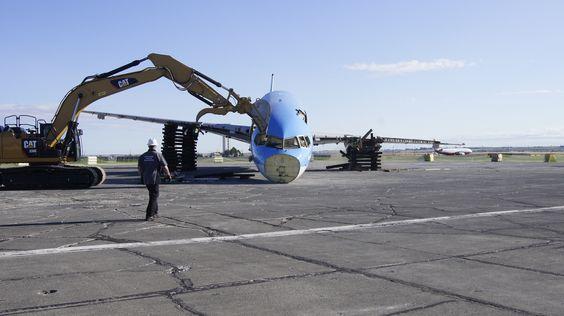Press release
Aircraft Recycling Market Is Growing At A CAGR Of 12.50% By 2032
The aircraft recycling market plays a crucial role in the aviation industry's efforts to manage end-of-life aircraft sustainably, responsibly, and economically. Aircraft recycling involves the dismantling, disassembly, and recycling of retired aircraft to recover valuable materials, components, and parts while minimizing environmental impact and maximizing resource efficiency. With increasing concerns about aircraft sustainability, regulatory requirements, and market demand for recycled materials, the aircraft recycling market has grown significantly in recent years. Here's a comprehensive overview of the aircraft recycling market, highlighting key points, trends, and recent industry developments.
Download a Free sample copy of Report:
https://www.marketdigits.com/request/sample/2563
Major vendors in the global Aircraft Recycling Market are ADI- Aircraft Demolition & Recycling, Air Salvage International, Aircraft End-of-Life Solutions, Aircraft Part Out Company, Apple Aviation, ARC Aerospace Industries, Aviation International Recycling, ComAv Technical Services, KLM UK Engineering, Sycamore Aviation, Tarmac Aerosave, Total Technic, Universal Asset Management Inc, Vallair, VAS Aero Services and Others.
Key Points:
Market Growth: The aircraft recycling market has experienced steady growth driven by factors such as the retirement of aging aircraft fleets, increasing regulatory requirements for environmentally sustainable aircraft disposal, and growing demand for recycled materials in manufacturing industries. As airlines retire older aircraft models and replace them with newer, more fuel-efficient models, the need for efficient and environmentally responsible aircraft recycling solutions continues to rise.
End-of-Life Aircraft Management: Aircraft recycling involves the management of end-of-life aircraft, including commercial airliners, cargo planes, military aircraft, and regional jets, at various stages of their lifecycle. When aircraft reach the end of their operational service life due to age, obsolescence, or economic factors, they undergo decommissioning, dismantling, and recycling processes to recover valuable resources and mitigate environmental risks associated with aircraft disposal.
Recycling Process and Technologies: The aircraft recycling process typically involves several stages, including:
Aircraft retirement and storage
Parts reclamation and resale
Component disassembly and separation
Material recycling and recovery (e.g., metals, composites)
Hazardous material management and disposal (e.g., fluids, chemicals)
Environmental remediation and site restoration
Advanced recycling technologies, such as automated dismantling equipment, composite material recycling processes, and environmentally friendly chemical treatments, enable efficient and safe aircraft recycling operations while minimizing waste generation and pollution.
Circular Economy Principles: Aircraft recycling aligns with principles of the circular economy by promoting resource conservation, material recovery, and waste reduction in the aviation industry. By recovering and repurposing valuable materials and components from retired aircraft, such as aluminum, titanium, carbon fiber composites, engines, avionics, and landing gear, aircraft recycling contributes to resource efficiency, cost savings, and environmental sustainability across the aerospace supply chain.
Key Trends:
Regulatory Compliance and Certification: Regulatory requirements for aircraft end-of-life management, recycling practices, and environmental sustainability drive industry-wide compliance efforts and certification initiatives in the aircraft recycling market. Regulatory bodies such as the International Civil Aviation Organization (ICAO), Federal Aviation Administration (FAA), and European Aviation Safety Agency (EASA) establish guidelines, standards, and best practices for aircraft recycling operations to ensure safety, environmental protection, and regulatory compliance.
Material Recovery and Recycling Technologies: Advancements in material recovery and recycling technologies enable the efficient and environmentally responsible recycling of aircraft components and materials. Innovations in composite material recycling, metallurgical processes, and waste-to-energy conversion techniques improve the recovery rates of valuable materials from retired aircraft, such as aluminum, titanium, copper, and high-performance composites, while reducing energy consumption and environmental impact.
Market Demand for Recycled Materials: Growing demand for recycled materials in manufacturing industries, such as aerospace, automotive, construction, and consumer electronics, drives market opportunities for recycled aircraft materials. Recycled aluminum, titanium, and carbon fiber composites from retired aircraft find applications in the production of new aircraft components, structural parts, and consumer products, offering cost savings, supply chain resilience, and sustainability benefits for manufacturers and end-users.
Sustainable Aircraft Disposal Practices: Aerospace stakeholders, including airlines, aircraft manufacturers, MRO (maintenance, repair, and overhaul) providers, and recycling facilities, prioritize sustainable aircraft disposal practices and environmental stewardship in their operations. Collaborative initiatives, industry partnerships, and sustainability programs promote the adoption of environmentally friendly aircraft recycling solutions, waste minimization strategies, and pollution prevention measures throughout the aircraft lifecycle.
Major Segmentations Are Distributed as follows:
By Aircraft:
Narrow-Body
Wide-Body
Regional
By Product:
Component
Engines
Landing Gear
Avionics
Others
Material
Aluminium
Other metals & alloys
Other materials
Recent Developments
In October 2022, Air France-KLM and Safran Landing Systems announced a partnership in order to develop and implement a closed-loop recycling program for landing gear components. The program aims to achieve 100% recycling of landing gear components by 2030.
In May 2022, Amentum, a U.S.-based government contractor, acquired AEROS Environmental, a leading provider of aircraft recycling and parts support services. The acquisition will expand Amentum's capabilities in the aircraft recycling market.
Recent Industry Developments (2024):
Expansion of Aircraft Recycling Facilities: Aircraft recycling facilities and specialized dismantling centers expand their capabilities and capacities to meet growing demand for aircraft recycling services worldwide. New facilities equipped with advanced recycling technologies, waste management systems, and environmental monitoring capabilities enhance the efficiency, safety, and sustainability of aircraft recycling operations while complying with regulatory requirements and industry standards.
Innovations in Composite Material Recycling: Research and development efforts focus on advancing composite material recycling technologies to address the challenges associated with end-of-life composite aircraft structures. Innovations in mechanical recycling, chemical recycling, pyrolysis, and thermoset resin recovery enable the efficient recovery and reuse of carbon fiber composites from retired aircraft, supporting circular economy objectives and reducing landfill waste.
Collaborative Industry Initiatives: Industry associations, research organizations, and government agencies collaborate on collaborative initiatives to promote sustainable aircraft recycling practices, share best practices, and develop industry standards and guidelines. Collaborative projects focus on technology development, environmental impact assessment, regulatory compliance, and workforce training to advance the sustainability and competitiveness of the aircraft recycling market globally.
Emergence of Circular Supply Chains: Aircraft manufacturers and aerospace suppliers explore opportunities to integrate recycled materials from retired aircraft into their supply chains, supporting circular economy principles and reducing reliance on virgin materials. Circular supply chain initiatives, such as closed-loop material recycling programs and product stewardship agreements, facilitate the traceability, quality assurance, and certification of recycled aircraft materials used in new aircraft production, aftermarket components, and industrial applications.
Get this report at a discount:
https://www.marketdigits.com/request/discount/2563
In summary, the aircraft recycling market continues to grow and evolve as aerospace stakeholders prioritize sustainable aircraft disposal practices, resource recovery, and environmental stewardship. Key trends such as regulatory compliance, material recovery technologies, market demand for recycled materials, and collaborative industry initiatives shape the future of the aircraft recycling market, driving innovation, market expansion, and sustainability efforts in the aviation industry.
More Related Reports:
Food Refrigerated Warehousing Market: https://www.globenewswire.com/en/news-release/2023/11/21/2784143/0/en/Food-Refrigerated-Warehousing-Market-estimated-to-reach-USD-66-4-Billion-by-2030-growing-at-a-CAGR-of-14-9-during-the-forecast-period-of-2023-2030-professed-by-MarketDigits-in-its-.html
CNG Powertrain Market: https://www.globenewswire.com/en/news-release/2023/12/15/2797087/0/en/CNG-Powertrain-Market-projected-to-reach-USD-309-9-Billion-by-2030-growing-at-a-CAGR-of-18-1-during-the-forecast-period-of-2023-2030-pronounced-by-MarketDigits-in-its-recent-study.html
Contact Us:
1248 CarMia Way Richmond,
VA 23235, United States.
Phone: +1 510-730-3200
Email: sales@marketdigits.com
Website: https://www.marketdigits.com
About MarketDigits:
MarketDigits is one of the leading business research and consulting companies that helps clients to tap new and emerging opportunities and revenue areas, thereby assisting them in operational and strategic decision-making. We at MarketDigits believe that a market is a small place and an interface between the supplier and the consumer, thus our focus remains mainly on business research that includes the entire value chain and not only the markets.
We offer services that are most relevant and beneficial to the users, which help businesses to sustain themselves in this competitive market. Our detailed and in-depth analysis of the markets catering to strategic, tactical, and operational data analysis & reporting needs of various industries utilize advanced technology so that our clients get better insights into the markets and identify lucrative opportunities and areas of incremental revenues.
Download a Free sample copy of Report:
https://www.marketdigits.com/request/sample/2563
Major vendors in the global Aircraft Recycling Market are ADI- Aircraft Demolition & Recycling, Air Salvage International, Aircraft End-of-Life Solutions, Aircraft Part Out Company, Apple Aviation, ARC Aerospace Industries, Aviation International Recycling, ComAv Technical Services, KLM UK Engineering, Sycamore Aviation, Tarmac Aerosave, Total Technic, Universal Asset Management Inc, Vallair, VAS Aero Services and Others.
Key Points:
Market Growth: The aircraft recycling market has experienced steady growth driven by factors such as the retirement of aging aircraft fleets, increasing regulatory requirements for environmentally sustainable aircraft disposal, and growing demand for recycled materials in manufacturing industries. As airlines retire older aircraft models and replace them with newer, more fuel-efficient models, the need for efficient and environmentally responsible aircraft recycling solutions continues to rise.
End-of-Life Aircraft Management: Aircraft recycling involves the management of end-of-life aircraft, including commercial airliners, cargo planes, military aircraft, and regional jets, at various stages of their lifecycle. When aircraft reach the end of their operational service life due to age, obsolescence, or economic factors, they undergo decommissioning, dismantling, and recycling processes to recover valuable resources and mitigate environmental risks associated with aircraft disposal.
Recycling Process and Technologies: The aircraft recycling process typically involves several stages, including:
Aircraft retirement and storage
Parts reclamation and resale
Component disassembly and separation
Material recycling and recovery (e.g., metals, composites)
Hazardous material management and disposal (e.g., fluids, chemicals)
Environmental remediation and site restoration
Advanced recycling technologies, such as automated dismantling equipment, composite material recycling processes, and environmentally friendly chemical treatments, enable efficient and safe aircraft recycling operations while minimizing waste generation and pollution.
Circular Economy Principles: Aircraft recycling aligns with principles of the circular economy by promoting resource conservation, material recovery, and waste reduction in the aviation industry. By recovering and repurposing valuable materials and components from retired aircraft, such as aluminum, titanium, carbon fiber composites, engines, avionics, and landing gear, aircraft recycling contributes to resource efficiency, cost savings, and environmental sustainability across the aerospace supply chain.
Key Trends:
Regulatory Compliance and Certification: Regulatory requirements for aircraft end-of-life management, recycling practices, and environmental sustainability drive industry-wide compliance efforts and certification initiatives in the aircraft recycling market. Regulatory bodies such as the International Civil Aviation Organization (ICAO), Federal Aviation Administration (FAA), and European Aviation Safety Agency (EASA) establish guidelines, standards, and best practices for aircraft recycling operations to ensure safety, environmental protection, and regulatory compliance.
Material Recovery and Recycling Technologies: Advancements in material recovery and recycling technologies enable the efficient and environmentally responsible recycling of aircraft components and materials. Innovations in composite material recycling, metallurgical processes, and waste-to-energy conversion techniques improve the recovery rates of valuable materials from retired aircraft, such as aluminum, titanium, copper, and high-performance composites, while reducing energy consumption and environmental impact.
Market Demand for Recycled Materials: Growing demand for recycled materials in manufacturing industries, such as aerospace, automotive, construction, and consumer electronics, drives market opportunities for recycled aircraft materials. Recycled aluminum, titanium, and carbon fiber composites from retired aircraft find applications in the production of new aircraft components, structural parts, and consumer products, offering cost savings, supply chain resilience, and sustainability benefits for manufacturers and end-users.
Sustainable Aircraft Disposal Practices: Aerospace stakeholders, including airlines, aircraft manufacturers, MRO (maintenance, repair, and overhaul) providers, and recycling facilities, prioritize sustainable aircraft disposal practices and environmental stewardship in their operations. Collaborative initiatives, industry partnerships, and sustainability programs promote the adoption of environmentally friendly aircraft recycling solutions, waste minimization strategies, and pollution prevention measures throughout the aircraft lifecycle.
Major Segmentations Are Distributed as follows:
By Aircraft:
Narrow-Body
Wide-Body
Regional
By Product:
Component
Engines
Landing Gear
Avionics
Others
Material
Aluminium
Other metals & alloys
Other materials
Recent Developments
In October 2022, Air France-KLM and Safran Landing Systems announced a partnership in order to develop and implement a closed-loop recycling program for landing gear components. The program aims to achieve 100% recycling of landing gear components by 2030.
In May 2022, Amentum, a U.S.-based government contractor, acquired AEROS Environmental, a leading provider of aircraft recycling and parts support services. The acquisition will expand Amentum's capabilities in the aircraft recycling market.
Recent Industry Developments (2024):
Expansion of Aircraft Recycling Facilities: Aircraft recycling facilities and specialized dismantling centers expand their capabilities and capacities to meet growing demand for aircraft recycling services worldwide. New facilities equipped with advanced recycling technologies, waste management systems, and environmental monitoring capabilities enhance the efficiency, safety, and sustainability of aircraft recycling operations while complying with regulatory requirements and industry standards.
Innovations in Composite Material Recycling: Research and development efforts focus on advancing composite material recycling technologies to address the challenges associated with end-of-life composite aircraft structures. Innovations in mechanical recycling, chemical recycling, pyrolysis, and thermoset resin recovery enable the efficient recovery and reuse of carbon fiber composites from retired aircraft, supporting circular economy objectives and reducing landfill waste.
Collaborative Industry Initiatives: Industry associations, research organizations, and government agencies collaborate on collaborative initiatives to promote sustainable aircraft recycling practices, share best practices, and develop industry standards and guidelines. Collaborative projects focus on technology development, environmental impact assessment, regulatory compliance, and workforce training to advance the sustainability and competitiveness of the aircraft recycling market globally.
Emergence of Circular Supply Chains: Aircraft manufacturers and aerospace suppliers explore opportunities to integrate recycled materials from retired aircraft into their supply chains, supporting circular economy principles and reducing reliance on virgin materials. Circular supply chain initiatives, such as closed-loop material recycling programs and product stewardship agreements, facilitate the traceability, quality assurance, and certification of recycled aircraft materials used in new aircraft production, aftermarket components, and industrial applications.
Get this report at a discount:
https://www.marketdigits.com/request/discount/2563
In summary, the aircraft recycling market continues to grow and evolve as aerospace stakeholders prioritize sustainable aircraft disposal practices, resource recovery, and environmental stewardship. Key trends such as regulatory compliance, material recovery technologies, market demand for recycled materials, and collaborative industry initiatives shape the future of the aircraft recycling market, driving innovation, market expansion, and sustainability efforts in the aviation industry.
More Related Reports:
Food Refrigerated Warehousing Market: https://www.globenewswire.com/en/news-release/2023/11/21/2784143/0/en/Food-Refrigerated-Warehousing-Market-estimated-to-reach-USD-66-4-Billion-by-2030-growing-at-a-CAGR-of-14-9-during-the-forecast-period-of-2023-2030-professed-by-MarketDigits-in-its-.html
CNG Powertrain Market: https://www.globenewswire.com/en/news-release/2023/12/15/2797087/0/en/CNG-Powertrain-Market-projected-to-reach-USD-309-9-Billion-by-2030-growing-at-a-CAGR-of-18-1-during-the-forecast-period-of-2023-2030-pronounced-by-MarketDigits-in-its-recent-study.html
Contact Us:
1248 CarMia Way Richmond,
VA 23235, United States.
Phone: +1 510-730-3200
Email: sales@marketdigits.com
Website: https://www.marketdigits.com
About MarketDigits:
MarketDigits is one of the leading business research and consulting companies that helps clients to tap new and emerging opportunities and revenue areas, thereby assisting them in operational and strategic decision-making. We at MarketDigits believe that a market is a small place and an interface between the supplier and the consumer, thus our focus remains mainly on business research that includes the entire value chain and not only the markets.
We offer services that are most relevant and beneficial to the users, which help businesses to sustain themselves in this competitive market. Our detailed and in-depth analysis of the markets catering to strategic, tactical, and operational data analysis & reporting needs of various industries utilize advanced technology so that our clients get better insights into the markets and identify lucrative opportunities and areas of incremental revenues.
Permanent link to this press release:
Copy
Please set a link in the press area of your homepage
to this press release on woodPRI. woodPRI disclaims liability for any content contained in
this release.
Recommend

/newsMicroencapsulation Market Deep Analysis on Key Players - Dow Corning, Encapsys, Syngenta Crop Protection, Evonik Industries, 3M and Bayer
Market Study Report Adds Global Microencapsulation Market Size, Status and Forecast 2024 added to its database. The report provides key statistics on the current state of the industry and other analytical data to understand the market.
Extensive research is required for choosing the appropriate cor...

/newsGermany Airbag Market Size 2023: Global Share, Industry And Report Analysis By 2030 | Hyundai Mobis Co., Ltd. Key Safety Systems, Inc. Robert Bosch GmbH
Germany airbag market is expected to grow at a CAGR of around 6% during the forecast period. Germany Airbag Market research report refers to gathering and analyzing significant market data serve as best medium for various industry players to launch novel product or service. It is vital for key firms...

/newsSecurities Brokerages And Stock Exchanges Market Outlook 2021: Big Things are Happening
A new intelligence report released by HTF MI with title "Global Securities Brokerages And Stock Exchanges Market Survey & Outlook" is designed covering micro level of analysis by Insurers and key business segments, offerings and sales channels. The Global Securities Brokerages And Stock Exchange...

/newsRenewable Chemicals Market Emerging Trends and Competitive Landscape Forecast to 2028
The renewable chemicals market was valued at US$ 80,566.30 million in 2021 and is projected to reach US$ 1,76,750.76 million by 2028 it is expected to grow at a CAGR of 11.9% from 2021 to 2028. The research report focuses on the current market trends, opportunities, future potential of the market, a...

/newsHow Coronavirus is Impacting Cold Brew Coffee, Global Market Volume Analysis, Size, Share and Key Trends 2020-2026
"Market Latest Research Report 2020:
Los Angles United States, February 2020: The Cold Brew Coffee market has been garnering remarkable momentum in the recent years. The steadily escalating demand due to improving purchasing power is projected to bode well for the global market. QY Research's lates...

/newsCorporate E-Learning Market - Global Industry Size, Share, Key Players Analysis that are Infor, SkillSoft Corporation, Adrenna, CERTPOINT Systems and others with Regional Forecast to 2022
Overview:
E-Learning is used to enhance the learning procedures for newer job requirements and to make employees sound about the internal and external changes in the market and respective organizations. This method has created considerable differences in the ways of training and developing employee...
